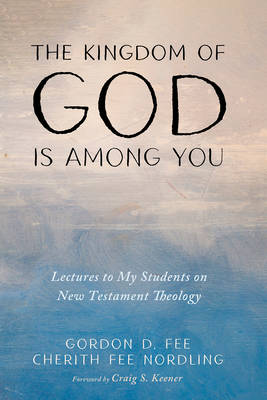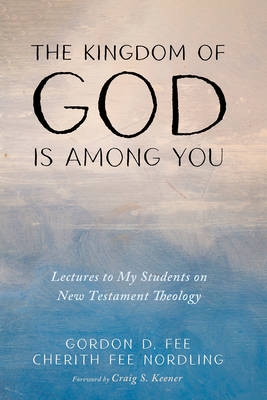
- Afhalen na 1 uur in een winkel met voorraad
- Gratis thuislevering in België vanaf € 30
- Ruim aanbod met 7 miljoen producten
- Afhalen na 1 uur in een winkel met voorraad
- Gratis thuislevering in België vanaf € 30
- Ruim aanbod met 7 miljoen producten
Zoeken
€ 81,95
+ 163 punten
Uitvoering
Omschrijving
In this exciting volume, a renowned New Testament scholar provides his lectures on New Testament theology and provides us a window on his approach on a variety of issues. He describes the task as follows: ""New Testament theology is the art of giving coherence to the collective witness of the twenty-seven New Testament documents as they attest to the Christian faith while not sacrificing the historical particularity of any one text or author within the canon, and to do this as clearly as possible and with as much consistency and unity as possible . . . New Testament theology deals with all the New Testament. We must resist the tendency to find a canon within the canon or to neglect some lesser figures in the New Testament canon . . . New Testament theology is first of all a descriptive task--i.e., we must first try to describe what is there. But given our stance toward Scripture, what we describe also becomes prescriptive or normative . . . We must never forget that the writings of the New Testament are ad hoc documents, written in each and every case to speak to a specific need. Thus, rather than careful, systematic presentations of theology (such as in a book or a lecture), the earliest Christian theology is worked out in the marketplace, as it were. Therefore, we must be careful not to force the New Testament writers to answer all of our questions, nor even to use our logic or thought forms."" (excerpted from chapter 1)
Specificaties
Betrokkenen
- Auteur(s):
- Uitgeverij:
Inhoud
- Aantal bladzijden:
- 398
- Taal:
- Engels
Eigenschappen
- Productcode (EAN):
- 9781666727128
- Verschijningsdatum:
- 17/03/2025
- Uitvoering:
- Hardcover
- Formaat:
- Genaaid
- Afmetingen:
- 152 mm x 229 mm
- Gewicht:
- 698 g

Alleen bij Standaard Boekhandel
+ 163 punten op je klantenkaart van Standaard Boekhandel
Beoordelingen
We publiceren alleen reviews die voldoen aan de voorwaarden voor reviews. Bekijk onze voorwaarden voor reviews.








